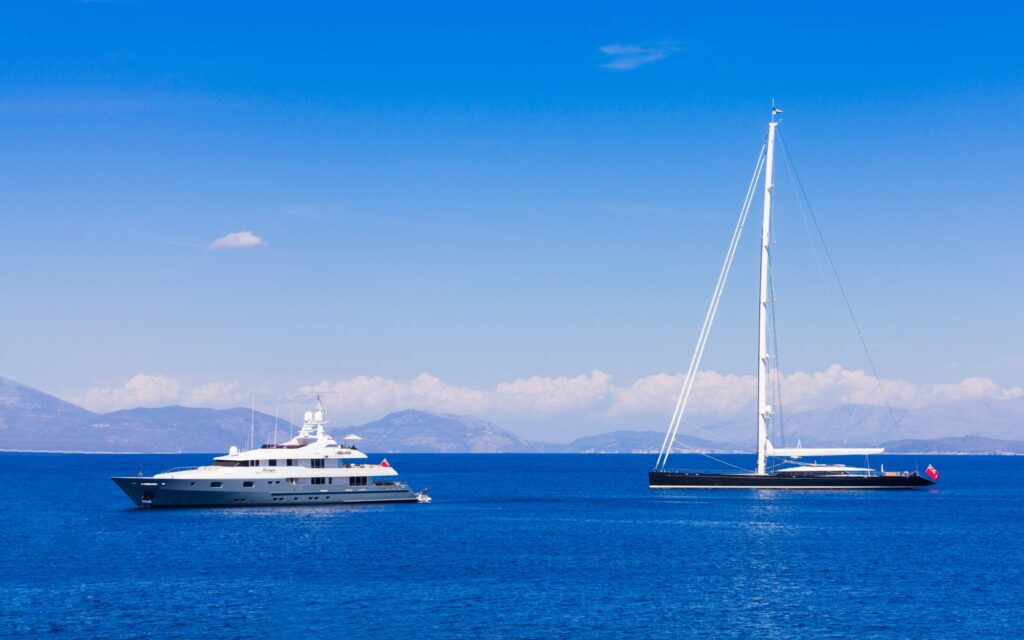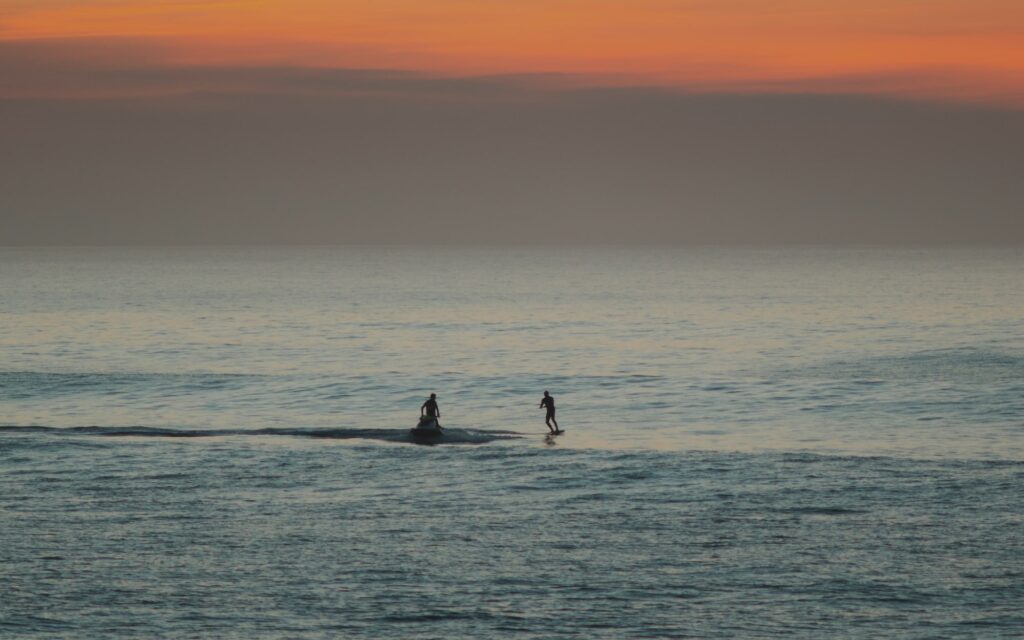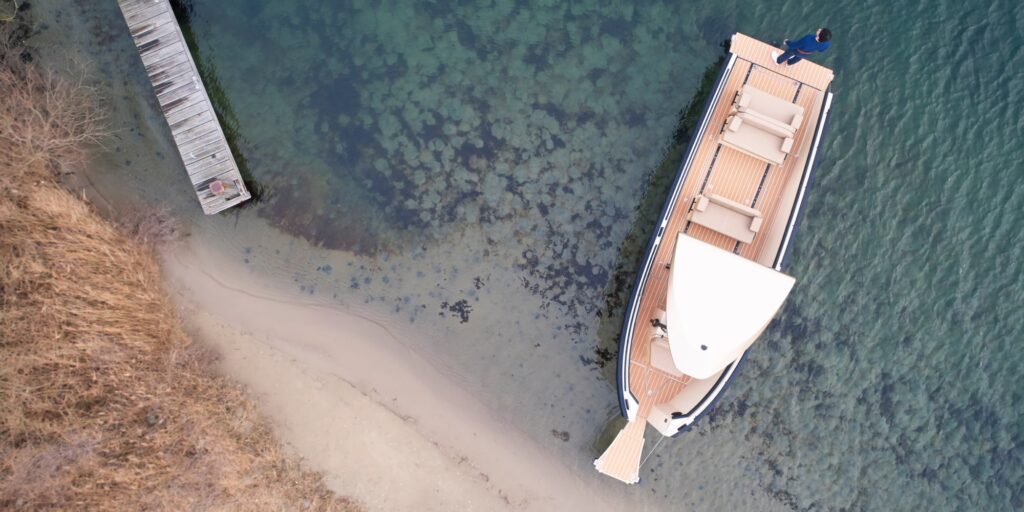The world of seafaring has a rich history and culture, and many of the phrases and idioms we use in our everyday language have their origins in nautical terminology.
From "loose cannon" to "plain sailing," these terms paint a picture of the hardy sailors who braved the open seas centuries ago. As a company in the maritime industry, we explore 20 of our favourite common phrases with an intriguing nautical background, and delve into their meanings and origins.
1 Loose Cannon
A "loose cannon" refers to a dangerous or unpredictable person or thing that is out of control. In nautical terms; a loose cannon would be a large gun (cannon) mounted on a ship's deck that has come loose from its moorings, rolling around the deck, and posing a danger to the crew and the ship itself.
2 By and Large
"By and large" is used to mean "in general" or "on the whole." This phrase comes from nautical terminology where it is used to describe the two points of sailing; "by the wind" and "large." To sail "by the wind" is to sail as close to the wind as possible, while to sail "large" is to sail as far from the wind as possible.
3 Cut and Run
To "cut and run" means to make a hasty retreat or to abandon something quickly. In nautical terms, "cutting and running" referred to the practice of cutting the anchor chain / rope and setting sail in a hurry, usually to escape a dangerous situation.
4 Fathom Out
To "fathom out" something is to understand or figure it out. A fathom is a unit of measurement equal to six feet, used for measuring the depth of water. So, "fathoming out" something means to measure or understand it fully.
5 Swing the Lead
To "swing the lead" means to feign ignorance or avoid doing something. This phrase comes from the practice of using a lead weight on a line to determine the depth of water. A sailor who was "swinging the lead" would be pretending to take soundings when they were actually avoiding doing their duties.
6 In the Offing
"In the offing" means in the near future or in sight. This term originates from a maritime background where a ship that was visible in the distance but not yet close enough to make out its details was referred to as “in the offing”.
7 No room to swing a cat
"No room to swing a cat" means that there is very little space. This phrase is thought to have originated from the punishment of flogging, which was done on board ships. The "cat" referred to a whip made of nine knotted ropes and was swung over the heads of sailors to discipline them. Below the deck of a cramped ship, there would be no room to swing the cat, hence the phrase.
8 Keel Over
To "keel over" means to collapse or tip over. The keel of a ship is a long beam running along the bottom of the ship that provides stability. If a ship were to "keel over," it would tip over on its side, often as a result of running aground.
9 Know the ropes
To "know the ropes'' means to be familiar with and understand the details of a particular subject or task. Of course, ropes were used for various purposes such as hoisting and controlling sails, steering the ship, and anchoring. Knowing how to handle these ropes effectively was crucial for sailors, hence the phrase "knowing the ropes" came to mean being well-versed in a particular subject or task.

10 Push the boat out
To "push the boat out" means to go all out, or to throw a big party. This phrase comes from the nautical tradition of sailors throwing a rowdy “push the boat out party” before setting sail on a long voyage.
11 Ship-shape / Bristol Fashion
Being in "ship-shape" or "Bristol fashion" means being in good order or neat and tidy. This phrase comes from Bristol, a port city in south west England with the second largest tidal range in the world. As the tide dropped ships would often run aground, “keel over”, and if not properly stowed, their cargo would be ruined. As a result, well-maintained ships with properly stored goods were known to be in ship shape and Bristol fashion.
12 The bitter end
The "bitter end" refers to doing something to the very end or until it is finished no matter what. In nautical terms, the bitter end is the last part of a rope (usually the anchor rope) that is still attached to a ship. A bitt is a tying post fixed to the deck of a ship, and when a rope is let out to the very end tied to a bitt, it means there is no rope left.
13 Cut of your jib
The "cut of your jib" refers to a person's appearance, style, or personality. In nautical terms, the jib is a triangular sail located at the front of a ship, and the way it's cut was a simple indicator sailors used to identify the type of ship, and its capabilities. So, in reference to a person, the "cut of their jib" is a way of saying that one can tell something about a person by their appearance, style, or mannerisms.
14 Three sheets to the wind
To be "three sheets to the wind" means to be drunk. This phrase comes from the nautical practice of using sheets (a type of rope), to control a sail. If a sailor let the sheets get loose or tangled, the sail would flap wildly and the ship would wallow and lurch around, similar to a drunken sailor.
15 Tide over
To "tide over" means to get through a difficult period or to survive until something better comes along. This phrase comes from the nautical practice of riding out a tide, or the rise and fall of sea levels, in a safe place until it's safe to set sail again.
16 Taken aback
To be "taken aback" means to be so surprised or shocked by something, one physically takes a step back. This phrase comes from the nautical term " aback," which refers to the position of a sail when the wind is blowing against it. If a sail is taken aback, it means that the wind has suddenly shifted direction, blowing the sails flat against the masts and spars that support them.
17 Plain sailing
"Plain sailing" means that something is easy and straightforward. This phrase comes from the nautical practice of sailing on open water with little wind or obstacles, making for an easy and uneventful journey.
There might seem to be little more to say about this phrase, but the term “plane sailing” adds another layer of complexity. Simplifying navigation by assuming the surface of the ocean is flat makes calculations and distance measurements significantly easier than the more precise method of "Mercator's sailing" that accounts for the Earth's curvature.
18 Turn a blind eye
To "turn a blind eye" means to ignore or pretend not to see something. This phrase comes from the story of British Admiral Horatio Nelson during the Battle of Copenhagen in 1801, where he reportedly pretended not to see a flagship's signal to retreat by putting his glass eye to his telescope.
19 Duffle bag
Originally a rough woven cloth bag used by sailors to carry their belongings, the name "duffle" comes from the Belgian town of Duffel near Antwerp, where the cloth was originally made.
20 Batten down the hatches
To "batten down the hatches" is to prepare for a storm or other difficult situation. This phrase originated from the practice of securing a ship’s hatches with a cover edged with wooden strips, known as battens to keep water from entering the ship during rough seas.






